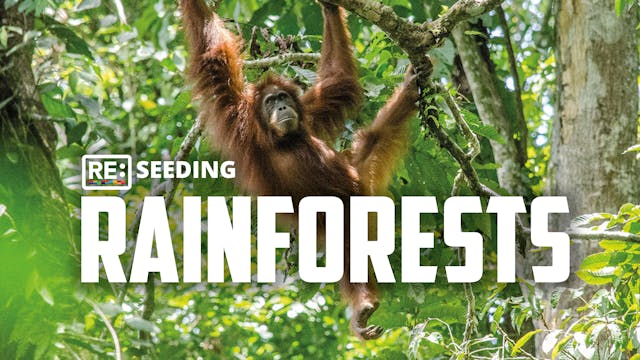Replenishing the Soil
RE:TV
•
6m 56s
In the last few decades, farmers around the world have grown dependent on synthetic fertilizers, which in the short term can have a huge impact on the productivity of land, but over a longer period of time deplete soils of natural microorganisms and nutrients, leach nitrogen into waterways, are carbon intensive to produce. In addition they can be very expensive for farmers in developing countries.
In Kenya, SAFI Organics have come up with a method of transforming agricultural waste from local rice farms into an affordable, organic fertilizer. Using their portable machinery developed in conjunction with MIT, SAFI take rice chaff that farmers had previously paid to dispose of, and produce organic fertilizer in under 8 hours. Their fertilizer increases crop yields by up to 30%, reduces soil acidity and also increases water retention in the soil. They are now developing the business to move into areas such as soil testing, where they survey the land in order to tailor their fertilizer for the specific requirements of each farmer.
Decentralising fertiliser production reduces costs for local farmers, unlocking more opportunities for smallholder farmers in rural locations, as well as improving the quality of the soil and eliminating the greenhouse gases associated with synthetic fertilizer production.
Up Next in RE:TV
-
RE:TV Series One Trailer
RE:TV highlights some of the inspiring innovations and ideas that are emerging in response to the climate and biodiversity crisis.
RE:TV was announced at the World Economic Forum at Davos in January 2020 by His Majesty King Charles III (then HRH The Prince of Wales) alongside the Sustainable Mar... -
Reintroducing Buffalo
Kainai knowledge-keeper Leroy Little Bear explains the importance of reintroducing buffalo in their traditional heartlands, where they hold a central place both in the local ecosystem and the culture of indigenous people.
The buffalo is a "keystone species": an eco-engineer which regenerates the...
-
Reseeding Rainforests
Brazil's Xingu Park is the oldest indigenous territory in Brazil. Its 2.6 million hectares provide a home to 16 different tribes. The Rede de Sementes do Xingu brings together over 500 indigenous seed-collectors to gather and disperse native seeds, preserving the Amazon's essential biodiversity w...



